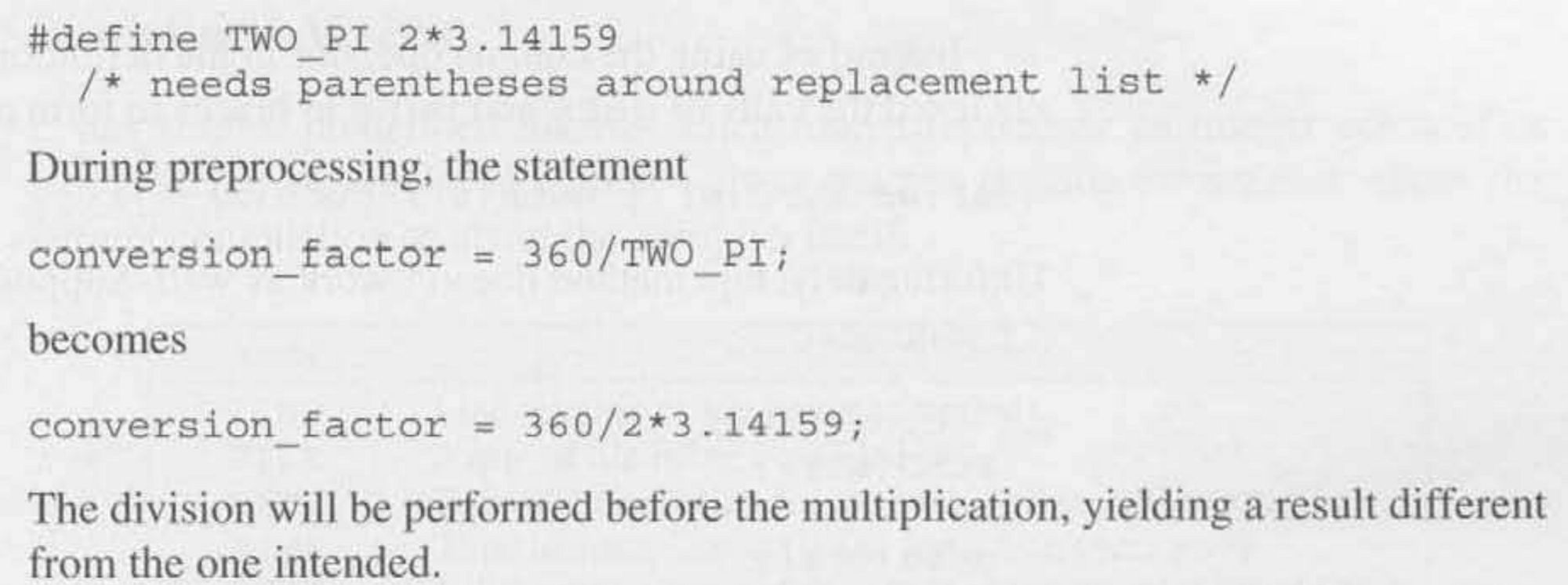Created: 2023-08-16 17:02
Status: #concept
Subject: Programming
Tags: C Constant Expression Preprocessor
Macro Definition
- we can also use them to make Macro Functions.
- they have like Global Scope variables until the end of the program's lifetime.
Syntax
#define CONSTANT_NAME <constant value>
In the background the Preprocessor will find all
CONSTANT_NAME strings in your code and replace them with <constant value> before Compiling the program.
#define INCHES_PER_POUND 166
/* we have to use parenthesis () when our expression has operators */
#define RECIPROCAL_OF_PI (1.0f / 3.14159f)
/* it's like variable assignment, but with #define at the start & no = sign & ; */
weight = (volume + INCHES_PER_POUND - 1) / INCHES_PER_POUND;
/* will become */
weight = (volume + 166 - 1) / 166;
Common Pitfall: Not Adding () Around Replacement List
Whenever we have parameters in our macros or Expressions in our
replacement-list, we must enclose them in () to ensure they behave correctly.
- we do this because the preprocessor simply replaces the text of our code before Compiling.

Parameterized Macros (function-like Macros)
#define identifier(...args) replacement-list
#define MAX(x,y) ((x) > (y) ? (x) : (y))
#define IS_EVEN(n) ((n) % 2 == 0)
Stringization Operator #
When using a parameterized macro with an argument
x, using #x in the replacement-list it encloses the string representation as a String Literal"x".
#include <stdio.h>
#define MAX(x,y) (x > y ? printf(#x " is greater.") : printf(#y " is greater."))
int main(void)
{
MAX(2/2, 6/2);
}
// outputs: 6/2 is greater.
What happens when we pass a string
"string" to a Stringization macro?
The " ... " of the string will be escaped to \" ... \" then enclosed again with "\" ... \"".
Token Pasting Operator ##
We can easily make new identifiers with these macros.
#define MK_ID(n) i##n
int MK_ID(1), MK_ID(2), MK_ID(3);
// is preprocessed into this
int i1, i2, i3;